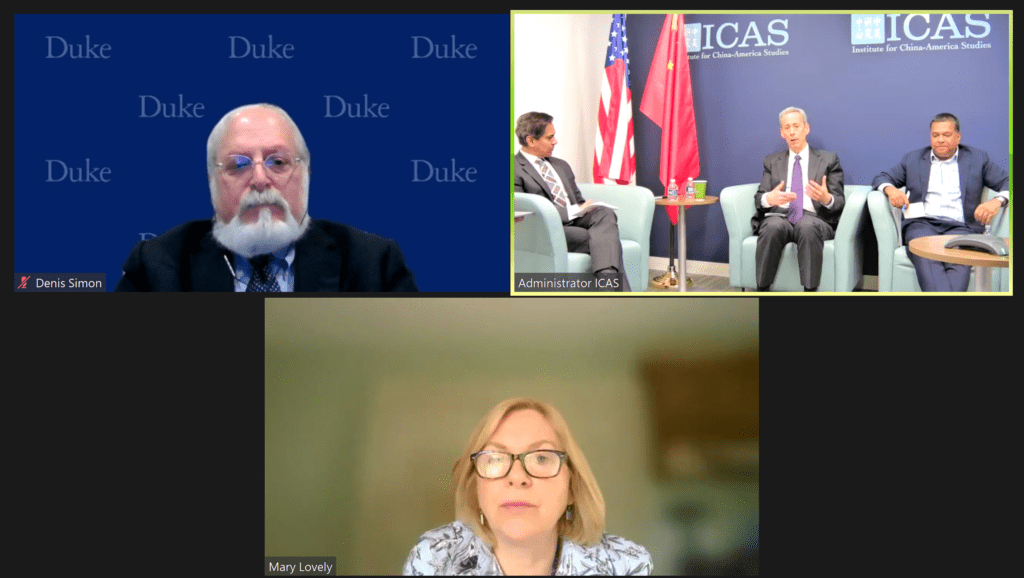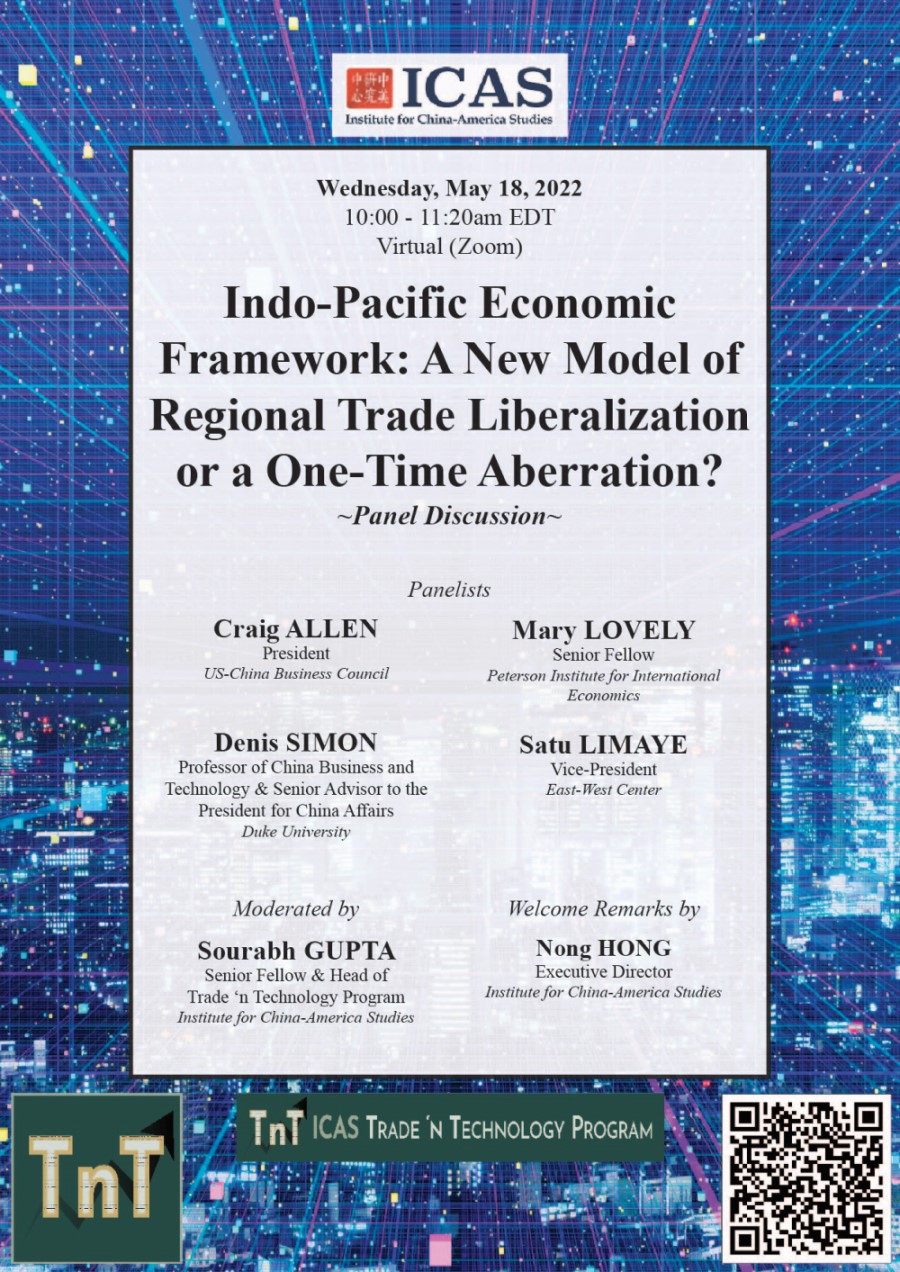

POST-EVENT SUMMARY
On May 18, 2022, the Institute for China-America Studies (ICAS) hosted a virtual public event to discuss the to-be-imminently-launched Indo-Pacific Economic Framework (IPEF). The event was titled “Indo-Pacific Economic Framework: New Model of Regional Trade Liberalization or One-Time Aberration?” Dr. Hong Nong, Executive Director and Senior Fellow at ICAS, delivered the opening remarks, speaking about the scope for both competition and cooperation in U.S.-China and U.S.-Asia trade relations. The discussion was moderated by Mr. Sourabh Gupta, Senior Fellow, and Head of ICAS’ Trade n’ Technology Program, and featured four speakers: Mr. Craig Allen, President, U.S.-China Business Council, Dr. Mary Lovely, Senior Fellow, Peterson Institute for International Economics, Dr. Satu Limaye, Vice President, East-West Center, and Dr. Denis Simon, Professor of China Business and Technology & Senior Advisor to the President for China Affairs, Duke University.
The panelists focused their attention on the politics, purpose, and proposed content of the Indo-Pacific Economic Framework – the Biden administration’s signature economic and trade cooperation initiative for the Indo-Pacific region. A consensus view was expressed that the initiative was a very different creature from the typical regional economic liberalization initiatives that had preceded it. As an administrative arrangement that does not include new market access commitments and features a consultative enforcement mechanism, IPEF marks a paradigm shift from the Asia-Pacific integration project pursued by the United States and its Asian partners over the past quarter-century. Among the dilemmas that this raises is that IPEF bears little by way of complementarity with the region’s other liberalizing initiatives, like RCEP and CPTPP, to which practically every other regional trade partner of the United States remains committed to. There was also a sense of uneasiness expressed that IPEF is geared not so much as a liberalizing endeavor as much as it is aimed at further decoupling U.S. and Asian supply chains from China-centric ones. Sitting in Beijing, this understandably arouses concerns regarding Washington’s intentions and end-purposes, and especially so at a time when there has been precious little bilateral engagement on the economic and trade front.
On the whole, there was praise from the panelists for the Biden administration’s intentions and effort to place Asia and the Indo-Pacific region on the front burner at a time when events in Ukraine and Europe have consumed colossal amounts of attention and energy. But the view was also expressed that, at the end of the day, the Indo-Pacific Economic Framework will stand or fall on whether it advances economic liberalization and integration in the Indo-Pacific region. Attempting to build China out of regional supply chains and economic frameworks does not seem to be the propitious way forward.
Background Image Source: Getty Images


